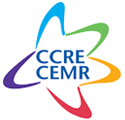
Sweden Unitary state
| SWEDEN | / STRUCTURES |
Structures and competences
Local level :
290 municipalities (kommuner)
The municipal assembly (kommunfullmäktige) is composed of members elected by direct universal suffrage for a four-year term. This assembly is the municipality’s decision-making body but can delegate important decision-making powers to the municipal executive committee and to the specialized committees. It also levies taxes and adopts the municipal budget.
The municipal executive committee (kommunstyrelsen) is composed of members appointed for a period of four years by the municipal assembly based on the share of seats obtained by each party within the municipal assembly. The municipal executive committee heads and coordinates the municipal administration, supervises the activities of the specialised committees, drafts the municipal budget as well as prepares and implements municipal council decisions.
It is presided over by a chair (kommunstyrelsens ordförande), the highest political representative of the municipality, which can be referred to in other countries as the “mayor”. However, in some Swedish municipalities, the “mayor” is the chair of the municipal assembly (kommunfullmäktiges ordförande).
The specialised committees (nämnder) are composed of members appointed for a four-year mandate by the municipal assembly. The committees are responsible for assisting the municipal executive committee in the preparation and implementation of decisions made by the municipal assembly.
COMPETENCES
Mandatory competences
- Social services
- Childcare and pre-school
- Primary and secondary education
- Care for the elderly
- Support for the physically and intellectually disabled
- Primary healthcare
- Environmental protection
- Urban planning
- Refuse collection and waste disposal
- Rescue and emergency services
- Water supply and sewerage
- Road maintenance
Optional competences
- Culture
- Housing
- Energy
- Employment
- Industrial and commercial services
Regional level :
11 county councils (landsting) and 9 regions (regioner)
The county council or regional council assembly (landstingsfullmäktige for county councils and regionfullmäktige for regions) is composed of members elected by direct universal suffrage for a period of four years. This assembly is the decision-making body of the county or region, approves the budget and levies taxes. The assembly can delegate important decision-making powers to the executive committee and to the specialised committees.
The executive committee (landstingsstyrelsen for county councils and regionstyrelsen for regional councils) is appointed for four years by the county or regional council assembly based on the share of seats obtained by each party within the assembly. This executive body is responsible for the preparation and implementation of county or regional council assembly decisions.
It also supervises the activities of the specialised committees, which are chaired by what can be considered in English as the “president” of the county council or region.
The specialised committees (nämnder) are composed of members either appointed or elected by the council assembly depending on its political composition. The committees are responsible for assisting the executive committee in the preparation and implementation of decisions made by the county or regional council assembly.
The nine regions of Gävleborg, Halland, Jämtland, Jönköping, Kronoberg, Skåne, Västra Götaland, Örebro, and Östergötland have retained the status and functioning of the county councils but have assumed greater responsibility in terms of regional development. Gotland, an island in the Baltic Sea, has the status of a municipality but also has competences normally attributed to regions, which is why it is also referred to as a region.
COMPETENCES
Mandatory competences
- Healthcare
- Dental care
- Public transport (via a regional public transport authority)
Optional competences
- Regional development
- Culture
- Tourism





